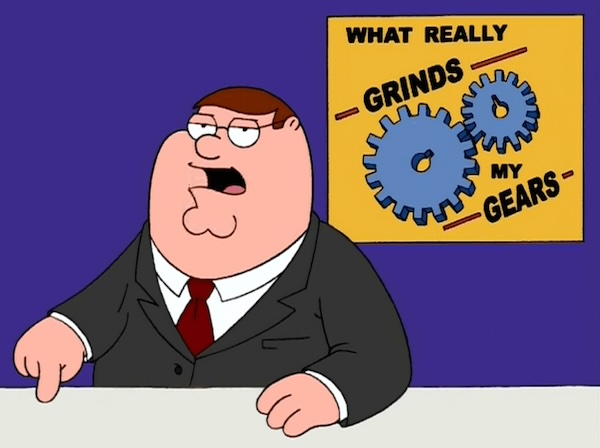
Creative Commons work — tap to view the source.
ℹ️ Remember that I’m not a lawyer; I’m just someone with experience with signing post-employment contracts. None of this should be construed to be legal advice, and if you have any questions about employment law and your specific circumstances, you should consult a lawyer.
What’s a non-disparagement clause?
Sooner or later, you’re going to sign a separation agreement with a soon-to-be former employer. In that separation agreement, you’ll likely find a non-disparagement clause. Even in the sea of legalese of the separation agreement, you’ll recognize it immediately, and it will look something like this:
Non-Disparagement. In compliance with all applicable laws and in exchange for the Severance, you agree and covenant not to defame or criticize the services, business, integrity, veracity, or personal or professional reputation of the Company or any of its directors, officers, employees, affiliates, or agents of any of the foregoing in either a professional or personal manner, or induce others to do so.
Notwithstanding the foregoing, nothing in this agreement shall preclude you from making truthful statements that are required by applicable law, regulation, or legal process.
In plain language, the clause says that in exchange for getting severance, you will not disparage your former employer. In legal terms, “to disparage” means “to criticize, belittle, discredit, dishonor, or lower in esteem.” You are promising to never say anything negative about your former company and possibly a lot of things associated with it, including the services or products it offers, the people who run it, and so on.
Think about it — they’re asking a lot. You’re signing away your right to say, write, or otherwise communicate things about your former employer such as:
- The people at the C-level’s plans are completely wrong,
- Their next product launch will fail
- You think that their stock price is going to plummet
- Their work environment is unpleasant, the managers micromanage, and they do surveillance on in-office employees and monitor remote employees’ keyboard and mouse activity to make sure that they’re actually working
- They suck
Basically, you’re promising not to say anything that would harm your former employer’s business or reputation.
Here’s an important notice: the part about “never say anything negative” in a disparagement clause applies even if those negative things are true or just your opinion (“I’m just sayin’, dude”). You are promising to never communicate anything negative about your former company.
What about your free speech rights?
Many countries have some kind of free speech law. For example:
- In the U.S., where I now live, there’s the First Amendment
- In Canada, where I spent most of my life, there’s Section 2 of the Charter of Rights and Freedoms
- In the U.K., Article 10 of the Human Rights Act covers free speech
However, those rights don’t apply to business contracts — otherwise, things like NDAs (non-disclosure agreements) wouldn’t work, and you’re waiving any such rights by signing an NDA or separation agreement.
What happens if you say something negative after agreeing to a non-disparagement clause?
If you sign a separation agreement with your former employer containing a non-disparagement clause and then say, write, or otherwise communicate something negative about your former employer, you will be in breach of contract. I am not a lawyer, but I can still authoritatively tell you that it’s bad news.
The career platform The Muse says that the consequences are usually financial. If your non-disparagement was in exchange your severance, your former employer may demand that severance back. They could also sue for damages, and lawyers can get pretty creative with calculating the financial value of the damage caused by your bad-mouthing.
Would they really go after you for disparagement?
As a consultant, I am qualified to give you the Standard Consulting Answer to that question: It depends.
ℹ️ Again, I remind you: I’m not a lawyer!
Of course, they’d have to find out that you were disparaging them first. Consider these scenarios:
Scenario 1: You and a friend are out for a walk. Your friend asks: “Hey, you worked at EvilCorp. What was it like?” You reply “It was Hell. Don’t work there. The people who run that dump have their heads up their asses, and the only reason they’re still around is a lack of competition and dumb luck.” Probably not a problem.
Scenario 2: Same as Scenario 1, but in a crowded Starbucks. Probably still not a problem.
Scenario 3: Same as Scenario 1, but in a crowded Starbucks right by your former employer’s office. Probably still not a problem, but getting iffy. There’s a chance that someone at your company will overhear you and will take action, or at least snitch to someone who’ll take action.
Scenario 4: You post “Don’t work there. The people who run that dump have their heads up their asses, and the only reason they’re still around is a lack of competition and dumb luck.” using an anonymous throw-away account on Reddit. Iffy. Reddit has a large user base, but the details in your post or your writing style might give you away.
Scenario 5: Same as Scenario 4, but on Blind. Iffy. Blind is anonymous, but its user base is relatively small. There’s a much greater likelihood that what you post or your writing style might give you away.
Scenario 6: Same as Scenario 4, but on Facebook. A little risky if it’s a “friends only” posting, bad if it’s public. This is especially true with companies that have a social media team.
Scenario 7: Same as Scenario 4, but on LinkedIn. Superbad. Lots of people at a company scan for any mention of their company’s name on LinkedIn: social media teams, public relations, marketing, executives, and of course, the legal team.
If they find out, what they do in response depends on all sorts of factors, including:
- What’s the size of the company? A small one with fewer resources, a big one with a PR, Marketing, and Legal team, or something in between?
- Are they too busy to be concerned about you, or are they vindictive and lawsuit-happy?
- What did you say? How much damage did you do to their reputation?
- Are you worth going after?
Are there exceptions to the non-disparagement clause?
There are, and they include things such as:
- Reporting a crime committed by someone at your former employer
- Reporting criminal activity by your former employer
- Providing negative information about your former employer to law enforcement or a government agency conducting an investigation
- Filing a workers’ compensation claim
I read somewhere that non-disparagement clauses were rendered invalid in the same way that non-compete laws were. How about that?
I keep telling you: I am not a lawyer. Go ask one.
What I can definitively tell you, in spite of NOT being a lawyer, is that non-disparagement clauses are still being included in separation agreements, which are contracts. I know, because there was one in the one I signed.
Is there any reason I wouldn’t want to sign a separation agreement with a non-disparagement clause?
I’ve never had such a reason myself, but I’ve seen cases where that might be the case:
- The reasons listed in the section about exceptions (see above)
- If you are taking your former employer to court for harassment, bullying, or a similar reason
- If there is something that the world really, really, really needs to know about your former employer
- If you’re a free speech absolutist and you can get by without the severance

I’ve spoken with some people who’ve come to me for advice about their non-disparagement agreements because the thought of never saying anything bad about their old company really ground their gears.
In response, I asked them if there were any situations where they’ve opted to shut up rather than speak the truth because it was worth it:
- Have you ever not said something or refused to answer a question because it was told to you in confidence or protect someone’s privacy? Even if doing so made you look bad or got you into trouble?
- Have you ever refrained from expressing your true opinion about something because it would make the situation worse?
- In a discussion with a spouse or partner, are there topics you won’t touch or things you won’t say because bringing them up will just create a world of hurt — or divorce?
This is a call that you have to make for yourself.
So what did you do, Joey?
Here’s what I’ve done with separation agreements that contain non-disparagement clauses. Please keep in mind that I am not a lawyer, and even if I were, I’m not your lawyer, and this is not legal advice:
I signed them.
I’ve also avoided saying, writing, or doing anything negative about those companies. But keep in mind that none of those places were anywhere near bad enough for me to breach the agreement and bad-mouth them to the world.
Even though I’m in a good spot financially and have savings to see me through this kind of situation, I signed and took the severance because any issue I have with my former employer isn’t worth as much as having extra money to extend my financial runway. The current job market is tough, and I want to have the reserves to ride out a long job search.
In my particular case — and remember, everyone’s case is different — I would come off more as an angry Yelp reviewer than an avenging angel if I were to publicly bad-mouth a former employer. To do so would be a waste of my time and effort that could be directed towards better things.
Instead, I moved on with my life to the next success, singing this song along the way…
…except in the part where he yells out “DJ Khaled!” I yell out “Accordion Guy!” instead.
Also in this series…
- Laid off in 2024, part 1: The 15 worst minutes of 2024, followed by 15 more
- Laid off in 2024, part 2: First referrals and blue dragons
- Laid off in 2024, part 3: How are you doing?
- Laid off in 2024, part 4: Make the Year of the Blue Dragon YOUR year!
- Laid off in 2024, part 5: The next two weeks
- Laid off in 2024, part 6: The separation agreement / Money, money, money
- Laid off in 2024, part 7: Join me on “Surviving a Layoff” this Wednesday!
- Laid off in 2024, part 8: Step one — get a box…
- Laid off in 2024, part 9: The box came back, the very next day…
- Laid off in 2024, part 10: Unearned consequences